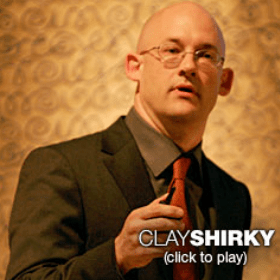The Trouble With Views On Online Education
 Recently, I read an opinion piece in the New York Times by Mark Edmundson touting “The Trouble with Online Education.” It just so happens that after nearly three decades of face-to-face classroom teaching (including at the college level) and a handful of years experimenting with “blended” courses to varying degrees, I have begun teaching a fully online course for the first time this Summer. So, naturally, the title of Professor Edmundson’s piece piqued my interest.
Recently, I read an opinion piece in the New York Times by Mark Edmundson touting “The Trouble with Online Education.” It just so happens that after nearly three decades of face-to-face classroom teaching (including at the college level) and a handful of years experimenting with “blended” courses to varying degrees, I have begun teaching a fully online course for the first time this Summer. So, naturally, the title of Professor Edmundson’s piece piqued my interest.
Initial Thoughts
Despite his self-proclaimed limited experience with online teaching and learning (he mentions taking only one online course from Yale), Edmundson makes a number of valid points. First, he says we need to pay attention to and learn from our students. Amen to that. Next, he states, “Every memorable class is a bit like a jazz composition.” In other words, the give and take of improvisation on a theme provides an apt metaphor for the way a class can unfold in astounding and enlightening ways. Absolutely, I agree. The best classes create “genuine intellectual community,” Edmundson writes. Yes, yes, yes, I’m with you. Finally, Edmundson states in a lovely turn of phrase, “a real course creates intellectual joy.” Sure wish I had thought of that one.
In the end, I found myself thinking, “You know, we agree more than one might expect. These things should be true of ALL learning environments.”
But Edmundson and I diverge when he states, “Online education is a one-size-fits-all endeavor. It tends to be a monologue and not a real dialogue.” Really? This is the conclusion we should all draw from taking one online course in which “there was nothing you could get…that you couldn’t get from a good book on the subject?”
So, I’ve been mulling these points over for a few days, thinking about how best to respond. I could tell stories about lousy college classes that did none of the things Edmundson claims make higher education so unique in its ability to inspire learning. But we all have those stories, don’t we? I could describe the ways my online course provides the kind of learning space that nurtures all of the things that Edmundson claims it can’t do. But I’d rather not assume the position of the offended educator who shouts that she is the exception to the rule. I could acknowledge the wide range of effectiveness of online teaching, which does indeed include some courses like the one Edmundson describes, those that merely videotape a live classroom of a brilliant professor and post it online to share with the world. I actually agree that this is not the kind of course I would recommend to my low-income students who could benefit most from open access to the best educational institutions in the country. (On the other hand, I thought, it might be fun to “audit” such a course when I’m doing the dishes or walking the dog.)
Serendipitously, it wasn’t until I was waiting to pick up a carry-out dinner and listening to NYU media professor Clay Shirky on the TED Radio Hour’s episode, “The Power of Crowds” (I know, radio is so old-school…), that I figured out what I wanted to say. After a clip from Shirky’s 2009 TED Talk in which he listed the four hugely transformative innovations that have changed “the media landscape” (you know, the printing press, the telegraph and telephone, the ability to print sound and images, radio waves), host Alison Stewart asked Shirky why the telephone chat room (or conference call, I presume) hadn’t significantly altered media – and thus the way we communicate –in the way the Internet has transformed how we congregate and share ideas. Patience, please, I’ll make the connection to online education in a bit.
Shirky responded, first, “Real time doesn’t scale.” Thus, the number of people who can benefit from a live, synchronous conversation via phone is limited. Next, he explained how “phone conversations can’t be stored, searched, or forwarded.” Hence, Internet conversations have the potential for extending conversations across time and space in a seemingly infinite way. “Distance doesn’t cost money on the Internet” was Shirky’s next point. The Internet, as opposed to telephone conversations that congregate a fixed number of people in a brief span of time, can connect participants globally at very little cost.
Bingo. Substitute face-to-face classrooms with telephone conversations and online education with Internet. Thank you, Clay Shirky.
Real Time Doesn’t Scale
Sitting at the feet of the academic gods, which is what the college or university classroom claims to provide for the uneducated, doubtless has inspired – and continues to inspire – many of us. But the fact is that those moments are few and far between even for those who can attend college. I can count the number of times I felt the magic of learning from the masters, well, on one hand. And such opportunities remain non-existent for those who cannot scrounge the funds to acquire such an elite education. Thus, the number of people who can actually benefit from attending Professor Edmundson’s courses at the University of Virginia is quite limited. But the number who might learn from an “open source” environment of courses designed for Internet engagement – now that’s another story.
Face-to-face Courses Can’t Be Stored, Searched, or Forwarded
You blink, become distracted by your neighbor’s Facebook posts, or tune out for a moment and miss a few beats of taking notes – and the magic of that classroom moment is gone. Certainly such moments may move us, even transform us, if they speak to us at the right time in our lives. But in a face-to-face classroom, how can we review the way the jazz of the conversation evolved, revisit an astute comment made by a classmate that didn’t quite gel for us when it was first shared, or come back to it years later to gain a deeper understanding than we were capable of initially? Online learning, which can be stored, searched, and forwarded with any number of useful tools for annotating and sharing, allows the jazz improv of learning (and potential collaboration with any number of co-learners) to continue indefinitely.
Distance Doesn’t Cost Money
In my current online course, from my home office in Houston, Texas, I teach students from both U.S. coasts and three Asian countries. They all pay the same tuition and receive the same detailed feedback from me in response to each lesson they produce. No one has to acquire a travel visa or get on a plane to attend. They all have my phone number (and Skype address) and know they can reach me via email or in person during Office Hours, which is more than I can say for a lot of the professors I worked with in college.
Similarly, I have colleagues who have participated in MOOCs (massive open online courses) with the movers and shakers of their disciplines. These courses have gathered together – for free – some of the best thinkers about education in the world. The discussions there have been rich and powerful. More importantly, they could not have happened without the Internet to bring the participants together in online spaces.
How often can we ordinary folk actually sit in on conversations between the greatest thinkers in our university disciplines? How often do we have the opportunity to actually add our two cents?
Actually, We Still Agree
I would be foolish to claim that face-to-face courses with brilliant professors and live jazz performances by great musicians do not create a dazzling, one-of-a kind experience. Likewise, we should acknowledge that online education has the power to do things that face-to-face classes cannot. If institutions of higher learning do little more than videotape the lectures of college professors to share online, they are only archiving their best live performances as so many YouTube posts, not creating the kind of rich learning communities that the Internet can encourage. (And frankly, I’d rather watch a TED talk… or read a book.)
None of us has the patience for “one-size-fits-all learning” anymore – online or otherwise. What we want is “intellectual joy.” Let us all, then, come together and make the most of both worlds.





Tom Vander Ark
Thanks Susan, great post!
Marissa Lowman
While I agree that online education opens up new ways of learning, including opportunities for a wide range of students to access high quality learning materials, I believe synchronous online learning is more engaging and effective than simply lecturing online or having students and instructors interact via online forums. Perhaps synchronous learning won't reach as many students, but we at GatherEducation, a virtual learning platform that allows instructors to teach classes naturally online in real-time, have found that collaborative learning is the most important determinant of student success. The problem with MOOCs is that they rely on self-paced learning to determine success instead of a blended learning model in which instructors are more akin to learning guides.
Renee Hawkins
Well stated, Susan. Thanks for articulating the reasons that make online learning so promising. Having taken several online courses, I can confirm that these were some of the most rigorous academic experiences of my life. There was no hiding from the conversation, no way to be a passive learner. In addition, there are thousands of testimonials from learners around the world who are able to access these opportunities because access to the Internet is cheap, unlike access to a professors classroom.
Dave
"Online learning, which can be stored, searched, and forwarded with any number of useful tools for annotating and sharing, allows the jazz improv of learning (and potential collaboration with any number of co-learners) to continue indefinitely."
Or we can ask students to pay attention, and not check Facebook posts in class. I see attention waning in the children I teach in elementary school. If I gave them laptops ... jeesh, they'd get nothing done. You don't see undeveloped attention spans as a problem? Or our I'll-get-to-it-when-I'm-not-so-inconvenienced cultture as a problem? I know, education is not supposed to be difficult. I should be able to learn Shakespeare if I want while making an omelette or texting my girlfriend. True? This is America, after all, and I want what I want when I want it. And I demand that others do not inconvenience me with their classes starting at a bad time for me.
Joanna
Clearly Mark Edmundson has presented an over-generalized and misunderstood representation of online education in his piece, "The Trouble with Online Education." The intent of online courses is not to replace the college experience, nor should it. For those of us lucky enough to have the opportunity to attend a traditional university, we could argue that it was a cherished event in our lives. But the truth is, not everyone WANTS TO or IS ABLE to come to campus to live in that immersive "college experience." Should those individuals be denied a higher education? An opportunity for personal and professional growth?
I've seen this mindset too often, as this argument has been ongoing since the disruption of online learning has threatened the status quo of learning in higher education. These fears come from a place of unknowing, and therefore the reaction is to doubt what is not familiar to us. Until you've been in online education for at least a few years, I'm not sure if the public should accept your opinion of a field you know little about. I have no doubt Edmundson and like-minded professors are engaging and able to connect with their learners, even in large lecture halls. But why discredit the online professors who have been able to make similar connections by over-generalizing online education as isolating and anonymous?
For those of us who understand online because we have lived it, we'd argue that not all online courses are created equal. We need to stop accepting these generalizations as truths. There are many different types of online education opportunities, and they range in quality just as our face-to-face opportunities do. To lump "online" into one category shows a clear misunderstanding of the intent of online learning. From open-source MOOCs to small online learning communities, each seeks a different audience and a different learning outcome. Online seeks to do the exact opposite of a "one-size-fits-all" approach: It give learners many different opportunities to gain knowledge and personal growth. If those in higher education are to be the presumed experts in teaching and learning, then let's take the time to better understand teaching and learning.
Educators in today's digital age should be able to seamlessly transition between online, blended, and face-to-face modalities of learning, or at the very least be able to understand and appreciate the differences.
Educators needs to unite. Aren't we all in this together? We need to stop comparing which modality of learning is better, and start accepting that learners need options. If we're threatened by a dwindling class size in our lecture halls, then maybe it's time to take a step back and examine what students are asking for. We all like to think that our practices are indeed "best practices," but is our close-mindedness causing a disconnect between our ultimate intention to educate? For the record, not every online course is an anonymous, "virtual" stand-and-deliver approach. There are also collaborative, project-based courses that connect learners on a global scale, bringing about new experiences that wouldn't otherwise be possible. Online education is changing the landscape in ways that redefine learning... the time/place factor is no longer a barrier for learners; instead, it empowers them.
Roofing contractors seattle
I think online education has advantages as well as disadvantages. While they offer the convenience, the students definitely miss out on the real class environment.
Sue
We spent years talking about engaging students and teachable moments. Online courses require time with technology, and ask students, that’s less time with them. Online really isn’t online. And I think there’s a lot lost. To the person who said teachers can move freely between all modes...they don’t teach full-time. What happened to the teachable moment? Oh..Zoom..killed it